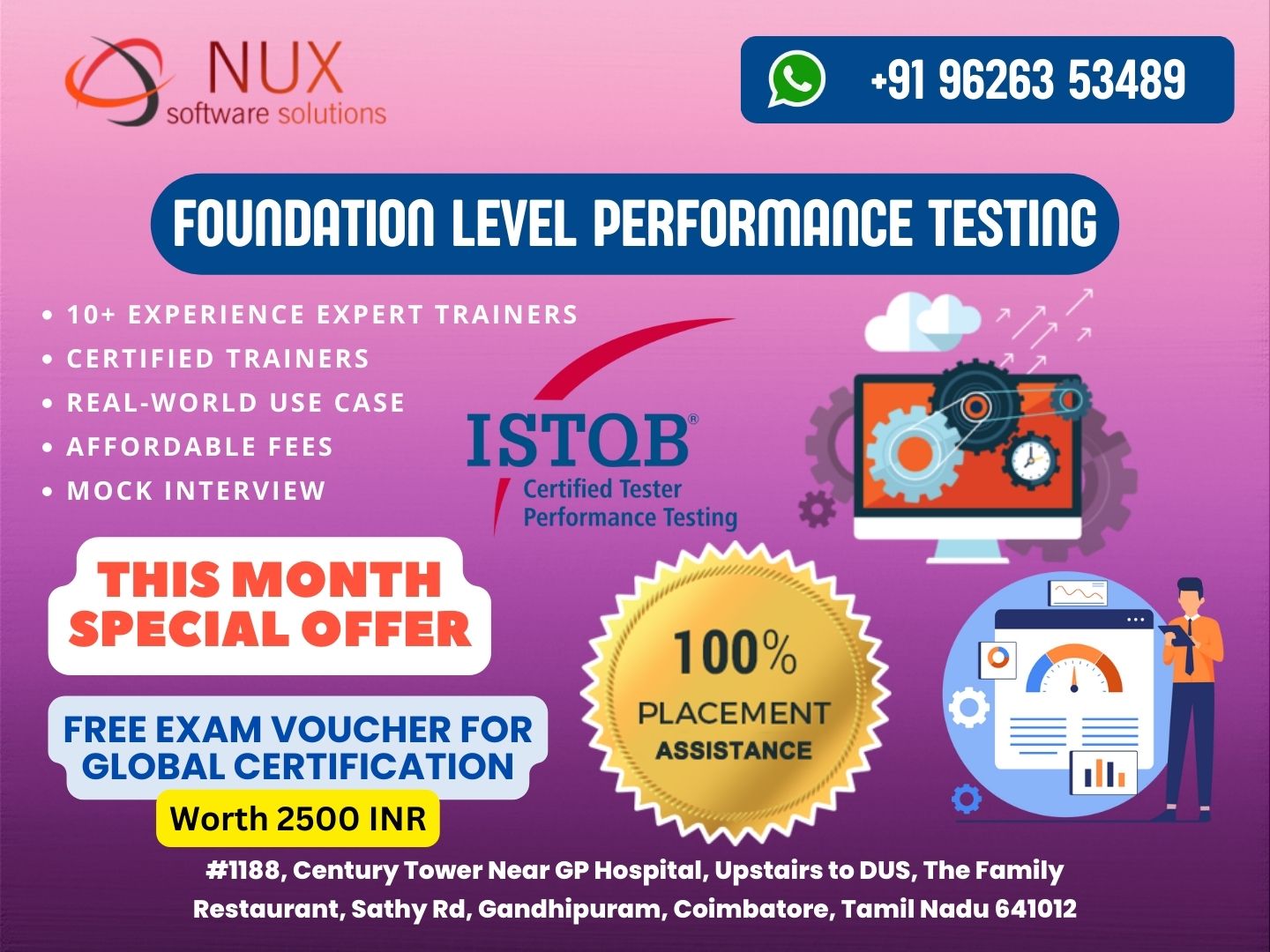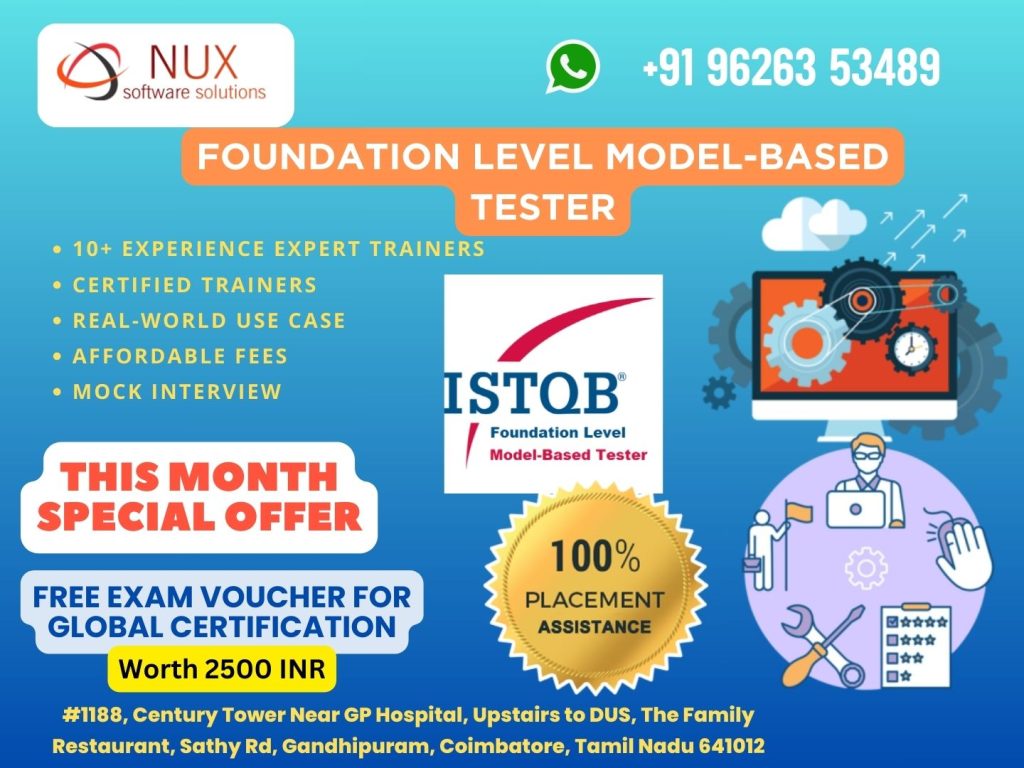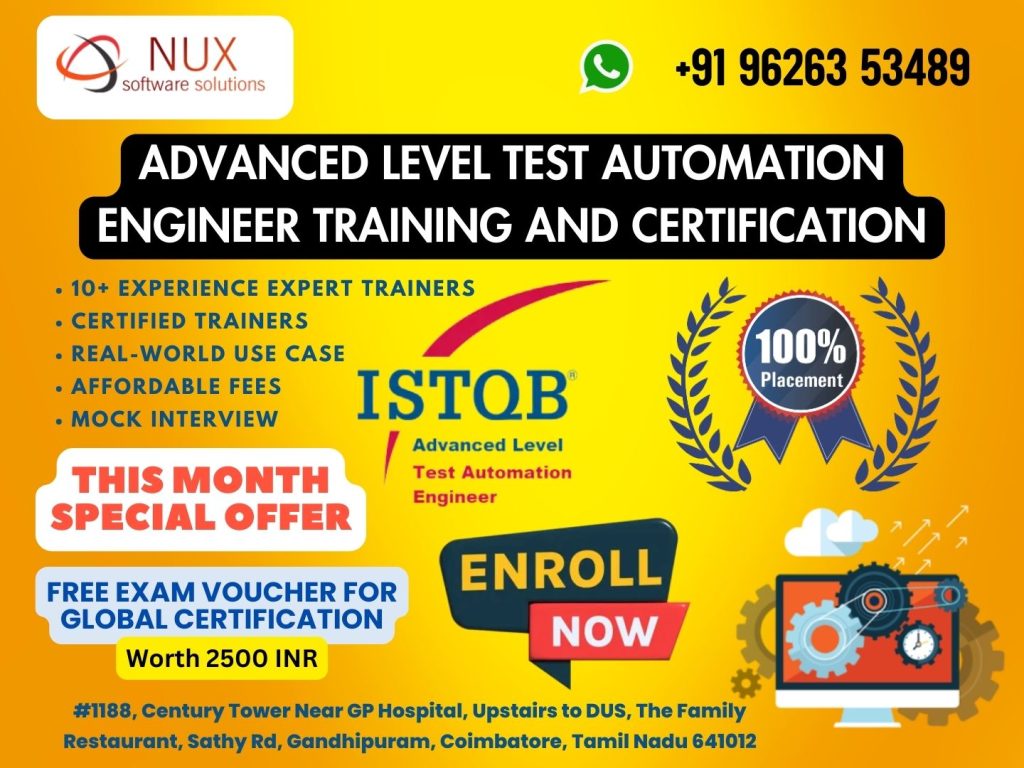Foundation Level Performance Testing

ISTQB Foundation Level Performance Testing Training in Coimbatore
Course Overview
The Foundation Level Performance Testing (FLPT) certification, an extension of the ISTQB Foundation Level, is designed to equip software testers with the knowledge and skills required to conduct effective performance testing across modern software systems.
This training program in Coimbatore provides a solid foundation in the principles, processes, and tools used in performance testing. It covers everything from planning and designing performance tests to analyzing performance test results and identifying system bottlenecks. The course is ideal for professionals looking to specialize in performance testing or enhance their current QA capabilities.
You’ll gain practical exposure to performance testing concepts and tools such as JMeter, LoadRunner, and others, preparing you to validate the responsiveness, scalability, and reliability of software applications.
What You’ll Learn
Fundamentals of performance testing
Key performance quality attributes (load, stress, spike, endurance)
Performance test planning and design
Performance risk identification and mitigation
Executing performance tests using industry tools
Interpreting results and performance metrics
Performance testing in Agile and DevOps environments
Who Should Attend?
Software Testers and QA Engineers
Test Analysts and Performance Engineers
Automation Testers looking to expand their skillset
Professionals with ISTQB Foundation Level certification
Anyone involved in performance-critical software delivery
Career Opportunities After This Course
Performance Test Engineer
QA Performance Analyst
Load Testing Specialist
Software Quality Engineer
Performance Consultant
Why Choose Our Performance Testing Course in Coimbatore?
Training by certified performance testing experts
Practical sessions with real-world tools and case studies
Covers current industry practices and tools
Fully aligned with ISTQB FLPT exam syllabus
Weekend and weekday flexible batch options
Support for ISTQB exam registration and guidance
Build expertise in ensuring software speed and stability. Enroll in our Foundation Level Performance Testing course and become a certified performance testing specialist.
Course Syllabus
Modules
Introduction to this Syllabus
0.1 Purpose of this Document
0.2 The Certified Foundation Level Performance Testing
0.3 Business Outcomes
0.4 Examinable Learning Objectives
0.5 Recommended Training Times
0.6 Entry Requirements
0.7 Sources of Information
1.0 Basic Concepts
1.1 Principles of Performance Testing
1.2 Types of Performance Testing
1.3 Testing Types in Performance Testing
1.3.1 Static testing
1.3.2 Dynamic testing
1.4 The Concept of Load Generation
1.5 Common Performance Efficiency Failure Modes and Their Causes
2.0 Performance Measurement Fundamentals
2.1 Typical Metrics Collected in Performance Testing
2.1.1 Why Performance Metrics are Needed
2.1.2 Collecting Performance Measurements and Metrics
2.1.3 Selecting Performance Metrics
2.2 Aggregating Results from Performance Testing
2.3 Key Sources of Performance Metrics
2.4 Typical Results of a Performance Test
3.0 Performance Testing in the Software Lifecycle
3.1 Principal Performance Testing Activities
3.2 Categories of Performance Risks for Different Architectures
3.3 Performance Risks Across the Software Development Lifecycle
3.4 Performance Testing Activities
4.0 Performance Testing Tasks
4.1 Planning
4.1.1 Deriving Performance Test Objectives
4.1.2 The Performance Test Plan
4.1.3 Communicating about Performance Testing
4.2 Analysis, Design and Implementation
4.2.1 Typical Communication Protocols
4.2.2 Transactions
4.2.3 Identifying Operational Profiles
4.2.4 Creating Load Profiles
4.2.5 Analyzing Throughput and Concurrency
4.2.6 Basic Structure of a Performance Test Script
4.2.7 Implementing Performance Test Scripts
4.2.8 Preparing for Performance Test Execution
4.3 Execution
4.4 Analyzing Results and Reporting
5.0 Tools
5.1 Tool Support
5.2 Tool Suitability



